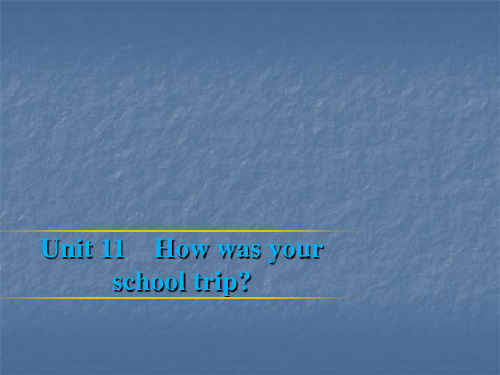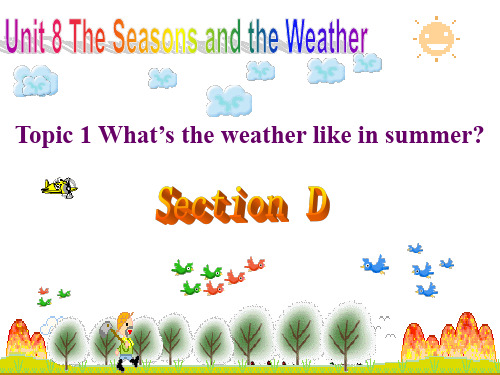七年级下Unit1-12 8K纸
- 格式:pdf
- 大小:215.12 KB
- 文档页数:12


英语七下笔记1至12单元以下是英语七下1至12单元的笔记,供您参考:Unit 1:- 学习一般现在时态,描述日常习惯和喜好。
- 掌握动词be的用法,以及人称代词的主格和宾格形式。
- 学习形容词和副词的比较级和最高级形式。
Unit 2:- 学习一般过去时态,描述过去发生的事情。
- 掌握动词的过去式形式,以及过去进行时的用法。
- 学习表示时间和地点的介词和副词。
Unit 3:- 学习一般将来时态,描述未来计划和预测。
- 掌握动词的将来式形式,以及将来进行时和将来完成时的用法。
- 学习表示意愿、可能性和必要性的情态动词。
Unit 4:- 学习现在进行时态,描述正在发生的事情。
- 掌握动词的现在分词形式,以及现在进行时的用法。
- 学习表示情感和感觉的动词和形容词。
Unit 5:- 学习一般现在时态的被动语态,描述被动情况。
- 掌握动词的被动语态形式,以及by引导的方式状语从句。
- 学习表示位置和方向的介词和副词。
Unit 6:- 学习形容词和副词的用法,描述事物的性质和程度。
- 掌握形容词和副词的位置和顺序,以及比较级和最高级的用法。
- 学习表示比较关系的连词和介词。
Unit 7:- 学习代词的用法,代替名词或名词短语。
- 掌握人称代词、物主代词、反身代词和不定代词的形式和用法。
- 学习表示目的、原因、条件和结果的连词和介词。
Unit 8:- 学习定冠词和不定冠词的用法,修饰名词。
- 掌握定冠词the、不定冠词a/an的形式和用法,以及冠词的省略情况。
- 学习表示数量、种类和单位的介词和副词。




七年级下册英语知识点手抄报8k纸一、引言手抄报是一种以手工制作为主的宣传形式,它可以通过文字、图片、色彩等多种方式来展示信息。
在七年级下册英语教学中,为了帮助学生更好地掌握英语知识点,教师可以引导学生制作英语知识点手抄报。
本文将介绍如何制作七年级下册英语知识点手抄报,以8k纸为例。
二、准备工作1. 准备材料:8k纸、彩色笔、铅笔、橡皮擦、尺子等。
2. 确定主题:选择与七年级下册英语知识点相关的主题,例如“时态”、“句型”、“词汇”等。
3. 规划版面:在8k纸上规划出手抄报的版面,包括标题区、知识点区、图片区等。
三、制作步骤1. 绘制标题区:在版面的顶部居中位置绘制标题,可以选择书写或绘制英文标题。
标题可以使用不同的字体和颜色,以增加手抄报的视觉效果。
2. 绘制知识点区:在版面的中间部分绘制知识点区,可以根据需要划分成不同的部分,例如“时态”、“句型”、“词汇”等。
在每个部分中列出相关的知识点,可以使用表格或图示等方式进行整理和归纳。
3. 绘制图片区:在版面的下方或旁边绘制图片区,可以插入与知识点相关的图片或图表,以帮助读者更好地理解和记忆知识点。
图片可以是从网络上下载的,也可以是学生自己创作的。
4. 完善细节:对手抄报的细节进行完善,例如添加边框、调整字体大小和颜色、增加注释等。
这些细节可以使手抄报更加美观和易于阅读。
四、注意事项1. 知识点要准确:在制作手抄报时,要确保所列出的知识点准确无误,避免出现错误或混淆。
2. 排版要美观:在排版时要注意美观度,可以使用不同的字体和颜色进行区分和突出重点。
同时要注意留白和间距,使版面看起来更加整洁和舒适。
3. 图片要相关:在插入图片时要注意与知识点相关,可以帮助读者更好地理解和记忆知识点。
如果图片不相关或不清晰,可以替换或删除。
4. 细节要完善:在完善细节时要注重细节的处理和调整,例如添加边框、调整字体大小和颜色、增加注释等。
这些细节可以使手抄报更加美观和易于阅读。
七年级下第1-12单元知识点讲解(打印稿)成都七中嘉祥外国语学校初2021级12班刘欣雨七下1―12单元必背句子与词组Unit1 Where’s your pen pal from? (ok)1. --你的笔友来自哪里? -- Where is your pen pal from? (无�D实义动词come, 用is/are‖)--他来自加拿大。
-- He/She is from Canada. 同义句:-- Where does your pen pal come from? (有�D实义动词come, 用do/does‖) -- He/She comes from Canada. 来自:be from = come from 练:They’re _______ Australia, a beautiful country.A. come fromB. comes fromC. fromD. for2. --你的笔友来自加拿大吗?-- Is your pen pal from Canada? (用法同上)--是的。
-- Yes, he/she is. 同义句:-- Does your pen pal come from Canada? (用法同上) -- Yes, he/she does. 3. 他来自澳大利亚:He is from Australia. 他是澳大利亚人:He is Australian. 4. --你的笔友住在哪里?-- Where does your pen pal live? --他住在多伦多。
-- He/She lives in Toronto.居住在某地:live in sp live with sb 与…某人一起生活练:-- When _____ the girl _____ her homework? -- In the evening.A. does, doesB. does, doC. is, doD. is, does -- _______your sister have a pen pal? Yes, she _______. A. Is, is B. Does, do C. Can, can D. Does, does -- Ling Tao is a Chinese, but now he _______ in the UK. A. live B. is C. is from D. comes from 5. --你的笔友说什么语言?-- What language does your pen pal speak? --他说英语。
英语七下知识点1~12单元作文范文Unit 1-12 of English Grade 7 covers a wide range of topics. From introducing myself and talking about daily routines in Unit 1 to discussing hobbies and free time activities in Unit 4, to describing family members in Unit 7, to recounting past experiences in Unit 10, the materials in each unit have broadened my understanding of English.In Unit 2, I learned about different school subjects and my favorite subjects. I also talked about my school timetable and what I do in each lesson. In Unit 3, we discussed daily routines and the activities we do at different times of the day. This helped me build a large vocabulary related to daily activities.Unit 4 focused on hobbies and leisure activities. I learned to express my likes and dislikes, talk about what I do in my free time, and describe hobbies I enjoy.Additionally, the unit provided vocabulary and phrases necessary for discussing leisure activities fluently.The topics covered in Unit 5-8 strengthened my proficiency in writing and speaking about personal experiences, travels, and different cultures. I learned to use different tenses to talk about past events and describe places I have visited.In Unit 9, I learned to talk about the weather and seasons. I became familiar with various types of weather and the vocabulary needed to discuss them. I also learned to use adjectives to describe the weather conditions and talk about the activities people do in each season.In Unit 11, I learned about transportation and how to talk about my daily commute. I encountered various modes of transport, learned to ask and give directions, and expanded my vocabulary related to travel.Finally, in Unit 12, I learned about different events and celebrations. I acquired the language needed to talk about special occasions, festivals, and traditions. This helped me understand different cultures and celebrate diversity.Overall, the materials covered in Units 1-12 equipped me with essential English language skills to communicate effectively in various situations. I look forward to continuing my exploration of the English language and expanding my knowledge in future units.。
七年级下册英语unit_1-12单元全册知识点归纳与复习总结Unit 1-12 Comprehensive Review and Summary of Knowledge Points in Grade 7 EnglishIntroduction:In this comprehensive review and summary article, we will provide an overview of the knowledge points covered in Units 1-12 of the Grade 7 English textbook. The article aims to help students revise and consolidate their understanding of the topics covered in these units. We will cover various grammar points, vocabulary, reading comprehension, listening skills, and writing skills that have been taught throughout the course. Let's dive in!Unit 1: Greetings and Introductions- Basic greetings and introductions- Expressing likes and dislikes- Asking and answering simple questions- Vocabulary related to personal informationUnit 2: Family and Friends- Vocabulary for family members and friends- Describing people's physical appearance and personality- Talking about hobbies and interestsUnit 3: School Life- Classroom objects and subjects- Talking about daily routines and schedules- Discussing school rules and responsibilitiesUnit 4: Health and Safety- Vocabulary related to health and illness- Expressing symptoms and giving advice- Talking about safety precautions and emergency situationsUnit 5: Food and Drinks- Vocabulary for food and drinks- Expressing preferences and ordering in a restaurant- Discussing healthy eating habitsUnit 6: Housing and Furniture- Vocabulary for different types of houses and rooms- Describing furniture and household items- Talking about home activities and choresUnit 7: Travel and Transportation- Vocabulary related to travel and transportation- Asking for and giving directions- Talking about different modes of transportation and travel experiencesUnit 8: Festivals and Celebrations- Vocabulary for various festivals and celebrations- Describing traditions and customs- Talking about holiday plans and activitiesUnit 9: Daily Life and Leisure- Vocabulary for daily activities and leisure time- Talking about past events and experiences- Expressing preferences for leisure activitiesUnit 10: Environment and Nature- Vocabulary related to the environment and nature- Discussing environmental issues and solutions- Describing natural phenomenaUnit 11: Art and Culture- Vocabulary for art and culture- Discussing different forms of art and their significance - Describing cultural practices and traditionsUnit 12: Science and Technology- Vocabulary related to science and technology- Discussing scientific discoveries and inventions- Talking about the impact of technology on societyConclusion:In this comprehensive review, we have covered the key knowledge points and topics from Units 1-12 of the Grade 7 English textbook. By revisiting these concepts, we hope that students will be able to consolidate their understanding and have a solid foundation for further English language learning. Remember to practice these skills in real-life situations to enhance your overall English proficiency. Good luck with your studies!。
Unit 1
好朋友,伙伴
笔友
加拿大
法国
日本
美国
澳大利亚
新加坡
美国
国家
悉尼
纽约
巴黎
多伦多
东京
居住
语言
日语;日本人
世界
法国人;法语
爱好
讨厌;不喜欢;反感;厌恶Unit 2
邮件;邮递
办公室;事务所
邮局
图书馆
餐馆;饭店
银行
超级市场
街;街道
付钱;支付
投币式公用电话
大街;林荫道
中央;中心
桥
邮件
在那里
在……附近
横过;在对面
在……对面
紧靠……的旁边;贴近
紧靠……的旁边;贴近;最接近介于(两者或多者)之间
前面;前边
在……前面
在……之后
街区;附近;附近地区
直接地;就;只,仅仅
径直地;直接地
转弯;转变方向
向左;左边
向下;下去;沿着
向右;右边
在右边
开着的;营业中的
市场;市集
清洁的;干净的
宁静的
肮脏的
房子;住宅
欢迎
花园;菜园
区域;地区
享受……的乐趣;欣赏
散步;步行
散步
穿过;通过
开始
旅行;游历
参观;游览
地方;地点
愉快;开心
玩得开心
(表条件)如果
饥饿的
到达;抵达
路;路线;路途
乘;坐;搭(车、船)
出租车;的士;计程车
飞机场
希望;盼望;期待您的;你的
Unit 3
树袋熊;考拉
老虎;虎
大象
海豚
熊猫
狮子
企鹅
长劲鹿
动物园
可爱的;聪明的动物
方框;盒;箱
有几分
南;南方
非洲
宾戈
丑陋的;难看的聪明的;机灵的友好的
美丽的;美好的害羞的;羞怯的其他的;另外的草
睡;睡觉在……期间
在晚上;在夜里叶子;树叶
懒惰的;懒散的肉;肉类
放松;休息
Unit 4
商店;店铺
助手;助理
店员
医生
记者;通讯员
侍者;服务员
银行职员
医院
现在;此时
担任主角;主演
女警察
护士
钱;金钱;货币
给;授予
获得;得到;购买;拿来穿;戴
制服
不时;有时
在……期间;在……之内危险的
小偷;贼
晚;晚于通常时间
在外;向外
谈话;谈论
车站;局;台
电视台
警方;警察
警察局
报纸
辛苦地;努力地
作为
按照;根据
夏季;夏天
故事;事迹;小说
杂志;期刊
年轻的;年纪小的
戏剧;剧本
新闻;消息
孩子们
国际的
教;讲授
技能;技巧
先生;阁下
女士;夫人
Unit 5
打扫;清除
读;阅读
通过;以……的方式
公寓;住宅
电视节目
当然;的确
等待;等候
等候;等待
玩具
西;西方
活动
买东西;购物
购物商场;商业的
水池;水塘
照相机
鸟
Unit 6
下雨
有风的;多风的
多云的;阴天的
晴朗的
下雪
天气;气候
莫斯科(俄罗斯首都)
波士顿(美国马萨诸塞州首府)烹调;煮
学习
坏的;劣质的
很糟的;极坏的;可怕的
相当;很;颇
炎热的;热的
寒冷的;冷的
凉爽的
温暖的;暖和的
潮湿的;湿润的
假期;休假
在度假;在假期中
拍照
平卧;躺
海滩
看;朝……看
团体;组
令人满意的;绝妙的感到惊讶的
热;热度
放松的;得到休息的冬季
围巾
每个人
玩得高兴;过得快乐男人;人;人类Unit 1-6
描述;形容
寻找;寻求
谈论;讨论;议论方向
单元
最
下列的;下述的
为了
改进;改善
Unit 7
头发;毛发
卷曲的;卷毛的
直的;笔直的
高的
中等的
高度
瘦的
重的
体格;体形
像;如同
总是;始终
队长;首领
队;组
受欢迎的;通俗的;流行的金黄色的
漂亮的
一点儿;少许
一点儿;少许
笑话;玩笑
决不;从不
停止;终止
棕色的;褐色的
人;人物
胡须
眼镜
外表;外貌
牢记;记住
流行音乐(或歌曲)
歌唱家;歌手
不再……
说;讲
没有人;没人
Unit 8
表示意愿
面条(常用复数)
牛肉
羊肉
洋白菜;卷心其
土豆;马铃薯
特色菜
饮料
大的;宽广的
大小;尺寸
碗;一碗的容量
果汁;果汁饮料
饺子
粥;糊
茶;茶叶
绿茶
米;稻;米饭
汤;羹
洋葱
鱼;鱼肉
电话
人民币
星期一
星期二
星期三
星期四
星期五
原因;理由
菜单
Unit 9
is的过去式
do的过去式
go的过去式
拜访;访问
考试;测验
……怎么样?
停留;留下
在家
做;进行;从事
阅读
练习;实践
正常的;规则的;有规律的动词
不规则的;无规律的
现在时态的;现在的;目前的过去时态的;以前的;过去的山;山脉
地理学
度过;花费
昨天
编号;号
中间的;中等的
中学
大多数的;大部分的;几乎全部的
购物
have的过去式
see的过去式
访谈节目;谈话;交谈;演讲
访谈节目
Write的过去式
歌;歌曲
去散步
坐;使坐下
sit的过去式
向下;在下面;下去;降低
猫
该是……的时候了
没有
任何事;无论何事
建议;意见
Unit 10
纽约市
野营;营地
夏令营
博物馆
向导
中心的;位于中心的
考试;检查
(表示疑问、惊讶、恼怒等)真的;是吗;真是的下雨的;多雨的
are的过去式
极好的
不友善的;不友好的
极坏的;极讨厌的
美味的
昂贵的
拥挤的
廉价的;便宜的
思考;考虑
水
流泪;哭泣
角落;街角;墙角
使;促使;迫使
make的过去式
感到;觉得
步;步行;散步
回原处;往回去
决定;下决心
墙壁;围墙;城墙
万里长城
宫殿
故宫
广场
天安门广场
(汉)胡同
写;制定;做
同班同学
讨论;议论
报告;汇报
性别
Unit 11
1. 肥皂
2. 肥皂剧;连续剧
3. 情景喜剧
4. 情景;形势
5. 没有什么;没有东西
6. (表示惊讶、欢乐、胜利、愠怒等)哈
7. 忍受
8. 介意
9. 君主;国王
10. ……怎么样
11. 事实;实际情况
12. 实际上;其实;确切地说
13. 文化
14. 主持人
15. 同意;赞成
16. 赞同;持相同意见
17. 太阳镜
18. 皮带
19. 钱包
20. 钥匙链
21. 由;被
22. 时尚;潮流
23. Say的过去式
24. 文章
25. 放;摆;装
26. 主意;想法
27. 色彩鲜艳的
Unit 12
规则
走廊;过道
教室
打架;争吵
女士
外面的;在外部的
进餐;吃饭
礼堂
不得不;必须
其他的;别的;另外的
运动鞋
体育馆
医生
到(某时)之前;不迟于
洗;洗涤
后来;以后
少年宫
不许讲话
Review of units 7-12配件;饰品
雪
预订;点(菜)
意见;看法Additional material 订单;订货
表格。